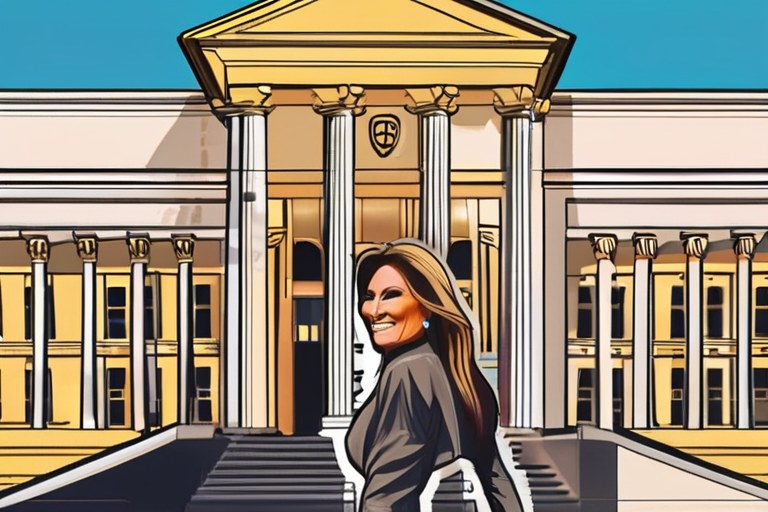Melania Trump Used as 'Window-Dressing' in Elaborate Memecoin Fraud, Legal Filing Claims
A new legal filing has alleged that the cryptocurrency promoted by US First Lady Melania Trump in January was part of a sophisticated fraud scheme that leveraged celebrity association to sell legitimacy to unsuspecting investors.
According to the proposed second amended complaint filed on Tuesday, Benjamin Chow and Hayden Davis, cofounders of Meteora and Kelsier Labs respectively, colluded to rig the market for at least 15 crypto coins, including M3M3 and MELANIA. The pair allegedly used a "pump-and-dump" strategy, artificially inflating the value of these coins before selling them off to unsuspecting investors.
The complaint alleges that Chow acted as the commander of this operation, using his influence to promote the coins and attract investors. Davis, on the other hand, is accused of providing the technical expertise needed to execute the scheme.
"We believe that our investigation has uncovered a massive Ponzi scheme that used celebrity association to lure in victims," said James Smith, lead attorney for the plaintiffs. "The fact that Melania Trump was used as 'window-dressing' to promote these coins is particularly egregious."
Background research suggests that memecoins are a type of cryptocurrency designed to be humorous or attention-grabbing, often with no real-world use case. However, they can still have significant value if enough investors buy into them.
The plaintiffs claim that the defendants used a combination of social media and online advertising to promote these coins, often using fake or misleading information to attract investors. The complaint also alleges that the pair used their influence to manipulate the market, artificially inflating the value of these coins before selling them off to unsuspecting investors.
This is not the first time that Chow and Davis have been accused of wrongdoing in the crypto space. In April, they were sued by a group of investors who claimed that they had lost millions of dollars investing in M3M3.
The implications of this case are far-reaching, with experts warning that it highlights the need for greater regulation in the crypto space. "This case shows just how vulnerable investors can be to these types of schemes," said Dr. Rachel Kim, a cryptocurrency expert at Harvard University. "We need to do more to protect consumers and prevent these types of scams from happening in the first place."
The court has yet to rule on the proposed second amended complaint, but if approved, it would add to the growing list of allegations against Chow and Davis.
Latest Developments:
The plaintiffs are seeking permission to file a new amended complaint based on alleged information provided by an anonymous whistleblower.
The defendants have not commented on the allegations, but their lawyers have denied any wrongdoing in previous statements.
The case is ongoing, with a trial date yet to be set.
*Reporting by Wired.*








